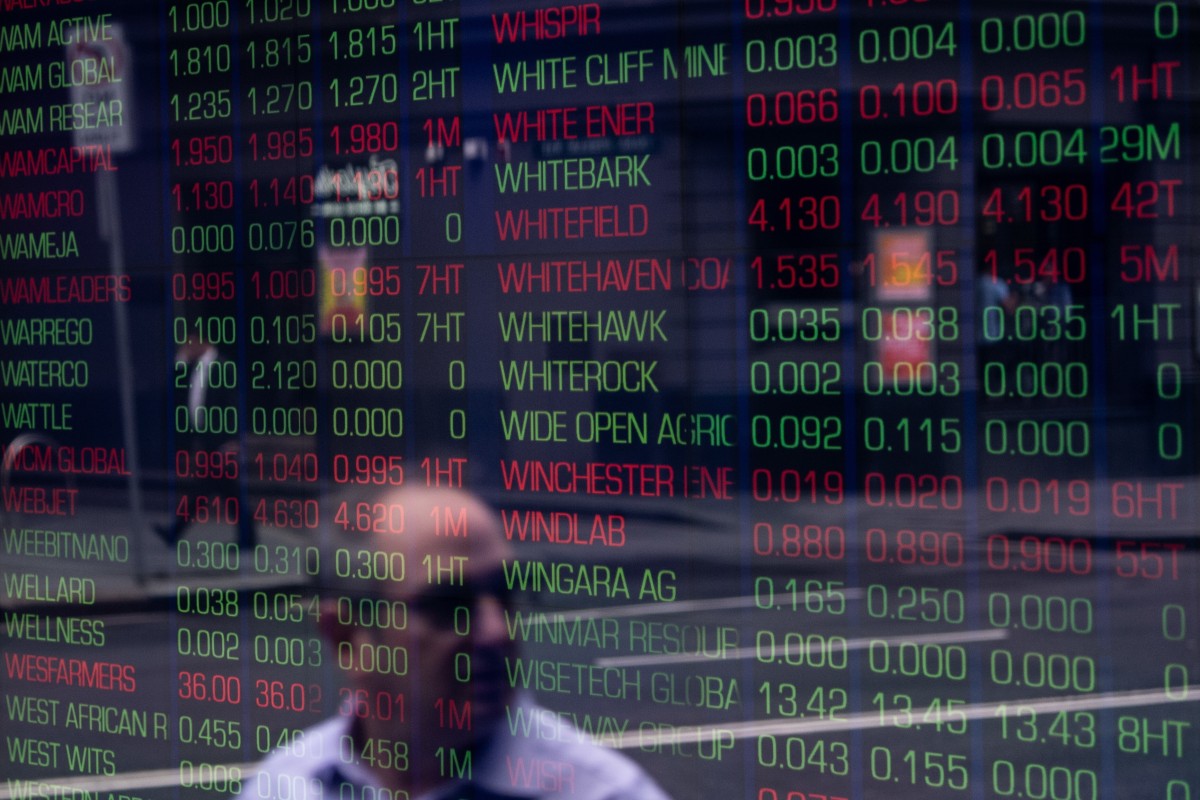
Most Asia markets advanced Tuesday, in an ironic ending to a volatile and brutal quarter in which the coronavirus pandemic left even top-name stocks in tatters.
Hong Kong’s Hang Seng Index finished with a quarterly loss of 16.3 per cent, having fallen into a bear market in mid-March. On Tuesday, it gained 1.9 per cent to 23,603.48.
Hong Kong investors have been hit and hit and hit: The destructive virus arrived on the heels of months-long protests and the US-China trade war that battered the city’s economy and the share prices of many of its companies.
China Southern Airlines, China’s largest airline, ended the quarter down by 37 per cent, as the virus grounded travel. Sands China, whose glitzy casinos are nearly empty due to virus-related travel restrictions into Macau, dropped nearly 32 per cent in the quarter.
Even Alibaba, whose secondary listing in Hong Kong in November was heralded as the start of Chinese companies listed in the US coming closer to home, fell 11.5 per cent in the quarter. The e-commerce giant, which owns the South China Morning Post, is considered a bellwether of the China economy.
“The quarter was driven by the black swan: No one could predict the virus outbreak,” said Kenny Wen, wealth management strategist at Everbright Sun Hung Kai. “Next quarter will be better. We expect [the Hang Seng] to hit 25,000 in the second quarter, provided that there are improvements on the virus outbreak.”
The Shanghai Composite Index fell nearly 10 per cent during the quarter. It is the only major index not in bear territory. (On Tuesday, it closed with a 0.1 per cent gain.)
The coronavirus, which has led the global economy into a recession, according to the International Monetary Fund, has ripped up supply chains, devastated the travel industry and left one-third of the world’s population in lockdown. About 38,000 people have died of the respiratory ailment.
While some hopeful signs have emerged – including rapid testing and advances toward a vaccine – it is unclear how long the coronavirus will shake – and shape – the world. This despite the world’s governments and central banks throwing “kitchen sink” stimulus at it.
Other benchmarks in the Asia-Pacific region were also brutalised.
Japan’s Nikkei 225 fell 20 per cent in the first quarter, while Korea’s Kospi tumbled about 20 per cent and Australia’s ASX 200 plunged 24 per cent.
The rest of the world fared no better.
The world’s stocks were on track for their worst quarter since the last three months of 2008, during the global recession, Bloomberg reported. While the US and European markets still have their last trading day of the quarter, the Dow Jones Industrial Average had so far dropped 22 per cent, while the UK’s FTSE 100 had fallen 25 per cent.
Yet, according to Stephen Innes, chief global strategist at AxiCorp, “No longer is the speed of the equity markets’ declines what stands out, but instead, it’s the rate of the recovery, especially amid the plentitude of downward and dreary growth revisions.
“It speaks volumes about the amount of stimulus that has been rolled out. And as dreary as things look today, there’s a chunk of pent-up spending to be done, and the markets are banking on this being a deep but short recession with the V-shape recovery still intact, as consumers will then make a mad dash to the mall with a big-ticket-item shopping list ,” Innes said.
Jobless claims in the US – the world’s largest economy – hit an all-time record of 3.3 million last week, and an additional 2.7 million claims could be filed this week, according to a Dow Jones survey of economists, as struggling business lay off workers. The US jobless rate could skyrocket to 30 per cent, which would be worse than during the Great Depression, St. Louis Federal Reserve President James Bullard has said.
“The hard time for Hong Kong and global markets with the virus may be over, but the real economy is still struggling, and we still may not have seen the end of the crisis,” said Alan Li, portfolio manager at Atta Capital.
On Tuesday, investor sentiment in Hong Kong was buoyed by new data out of China showing that the
Purchasing Managers’ Index rose to 52 in March, above the 50 threshold that signifies expansion. Analysts polled by Reuters had expected activity to contract, with 45 their consensus prediction.
The gauge slumped to a historic low of 35.7 in February amid a lockdown that forced many factories to close as part of China’s efforts to contain the viral outbreak. Analysts now warn that China faces serious difficulties ahead, including a sharp weakening of foreign demand amid the lockdowns elsewhere.
Bloomberg Intelligence economists Chang Shu and David Qu wrote in a new note: “Looking ahead, China’s economic outlook is extremely challenging in the coming months. The domestic economy is struggling to fully return to work. The increasing number of imported virus cases means containment measures will remain in place, restraining the pace of economic recovery.
“Firms continue to face wide-ranging challenges such as insufficient demand, staffing, funding, liquidity and interrupted supply chains. The challenges are particularly large for small private firms,” they said.
“Outside of China, countries are imposing increasingly stringent containment measures, bringing a large number of economies to a sudden stop and significantly weakening external demand for China’s economy,” they added.







